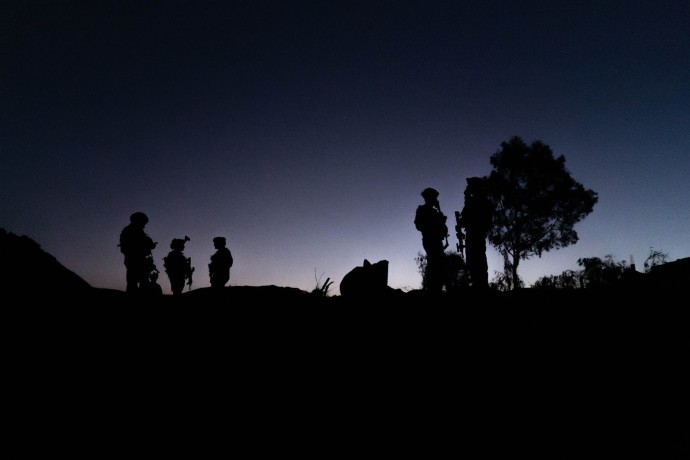Despite the steady flow of reports in recent weeks that the IDF would immediately take action with ground troops in Rafah, The Jerusalem Post has learned that such moves could still take time and significant negotiations.
Multiple sources have said that an IDF move in Rafah is not on the immediate horizon, even as Israel has made some progress in negotiations with Egypt over the issue.
Part of the tension seems to be that the Israeli government would prefer to have control of the Philadelphi Corridor before any ceasefire-hostage deal is cut with Hamas and before making commitments to Egypt and others about who will manage Gaza the “day after” the IDF withdraws.
In contrast, Cairo seems to prefer that if the IDF takes any action, it will be in a period where a ceasefire has already kicked in and after Jerusalem has already made promises about to whom it will hand over Gaza.

Is Israel entering Gaza's Rafah?
On Saturday night, Sky News Arabia reported that the IDF had informed Egypt it was about to take immediate action with its troops in Rafah and the Philadelphi Corridor.
According to the report, Egypt had rejected the request, and Egyptian Head of the State Information Services (SIS) Diaa Rashwan said last week, “It must be strictly emphasized that any Israeli move in this direction will lead to a serious threat to Egyptian-Israeli relations.”
The Sky News Arabia report was not the first such report, as on December 23, multiple Arab media outlets carried a similar report about the IDF being imminently ready to take over Rafah.
In late December, Arab media reported that the IDF had already told Egypt it was going to occupy the Rafah border area and asked Egyptian soldiers to evacuate the area, noting Israel would go forward with or without Egyptian cooperation.
Despite these multiple reports, the Post received repeated confirmations in both December and January that the IDF was not close to going forward and was still willing to significantly delay bringing Cairo on board through negotiations and information sharing.
On Tuesday, the Post learned that IDF intelligence chief Maj.-Gen. Aharon Haliva and Shin Bet (Israel Security Agency) Chief Ronen Bar visited Egypt on Monday to try to convince Cairo to work with Israel on the Rafah problem.
While they made some progress, it was unclear if this would allow Israel to begin acting in Rafah in the coming weeks or if actual action was still a longer and undefined period away.
Until now, the IDF has held off from going after Hamas in Rafah, from cutting off the terror group’s cross-Egypt-Gaza border tunnels, and from starting to build a new obstacle on that border to make any invasion or smuggling more difficult.
Egypt has objected because any IDF invasion of Rafah could unwittingly lead to hundreds of thousands of Palestinians pushing into Egypt in panic.
It has also objected to any IDF moves that might undermine its sovereignty and is concerned about any IDF expansionist war moves before a clear understanding of when the IDF will leave Gaza and how the area will be managed after the IDF’s withdrawal.
The Wall Street Journal had reported on Saturday that the tense relationship between Israel and Egypt was on the verge of collapse following weeks of a ‘deepening chill’ amid the IDF’s war on Hamas.
That report added that Egyptian President Abdel Fattah al-Sisi had refused to accept calls from Prime Minister Benjamin Netanyahu for several weeks running.
However, in light of ongoing negotiations between Israeli and Egyptian intelligence officials, it appears that al-Sisi may overlook his dislike of Netanyahu if he receives sufficient guarantees in certain areas from the security chiefs, who he trusts more.
